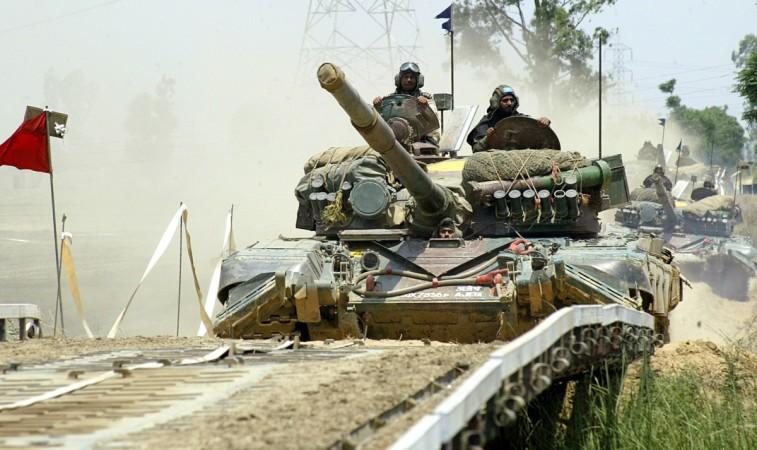
The Indian Army is gearing up for a huge exercise in the Thar desert later this month. The exercise, aimed at sharpening its "proactive war strategy," will simulate the ability to move without warning and attack its rival hard with multiple conventional strikes, the Times of India reported, citing a defence source.
The exercise is codenamed "Shatrujeet," and is being spearheaded by the Army's Strike Corps from the Jaipur-based South Western Command, and the 1 Corps, headquartered in Mathura, the newspaper reports. It will also feature other "offensive elements" of the "pivot corps" under the South Western Command.
This exercise is reported to be held in a simulated nuclear, biological, chemical (NBC) warfare situation with the Army's infantry, artillery and armoured formations being forward mobilised for the exercise. It will also include the airborne operations component with about 2,000-3,000 soldiers being paradropped "behind 'enemy' lines," according to the report. The exercise's final phase will be reviewed by the Indian Army Chief, General Dalbir Singh Suhag.
The exercise will test the Army's capability to "first generate and then maintain" intense offensive manoeuvres, which would be reinforced by long-range artillery fire and the Air Force, the report noted.
"Pakistan might be foolish enough to talk about tactical nukes as weapons but India's no-first-use nuclear policy is clear. It warns of a massive and harsh retaliation to any first NBC strike by an adversary, be it tactical or strategic," the source said to the newspaper, referring to Pakistan flaunting its newly-acquired "tactical or battlefield" nuclear weapons, as a weapon against any conventional Indian attack.
Pakistan has its share of long-range nuclear missiles, namely the Shaheen and Ghauri series, and it has also successfully developed a 60-km Nasr (Hatf-IX) missile (with subkiloton plutonium warheads) which it likes to brandish against India.
According to Pakistan, the Nasr missiles were developed to deter India's Cold Start military doctrine. The Indian Armed Forces had come up with what it called "Cold Start doctrine" or simply "pro-active war strategy" to rectify the loopholes experienced with the Army forward mobilisation under Operation Parakram in 2001 following terror attacks on the Indian Parliament House. It had then taken over a month for India to deploy its strike formations on the Indo-Pak border, thus allowing Pakistan to build its defences. The current exercise aims at better preparation for mobilising troops and carrying out strikes in three to four days, the report added.










